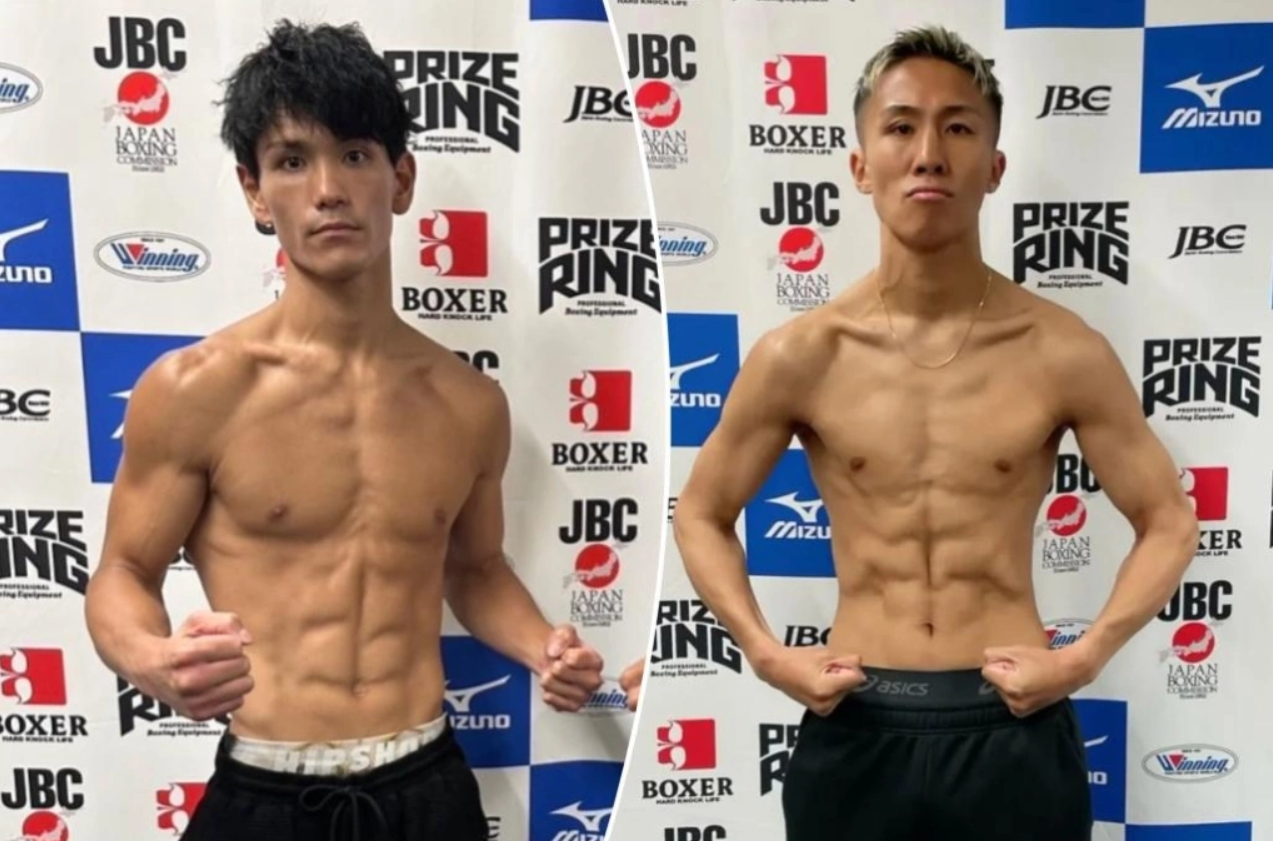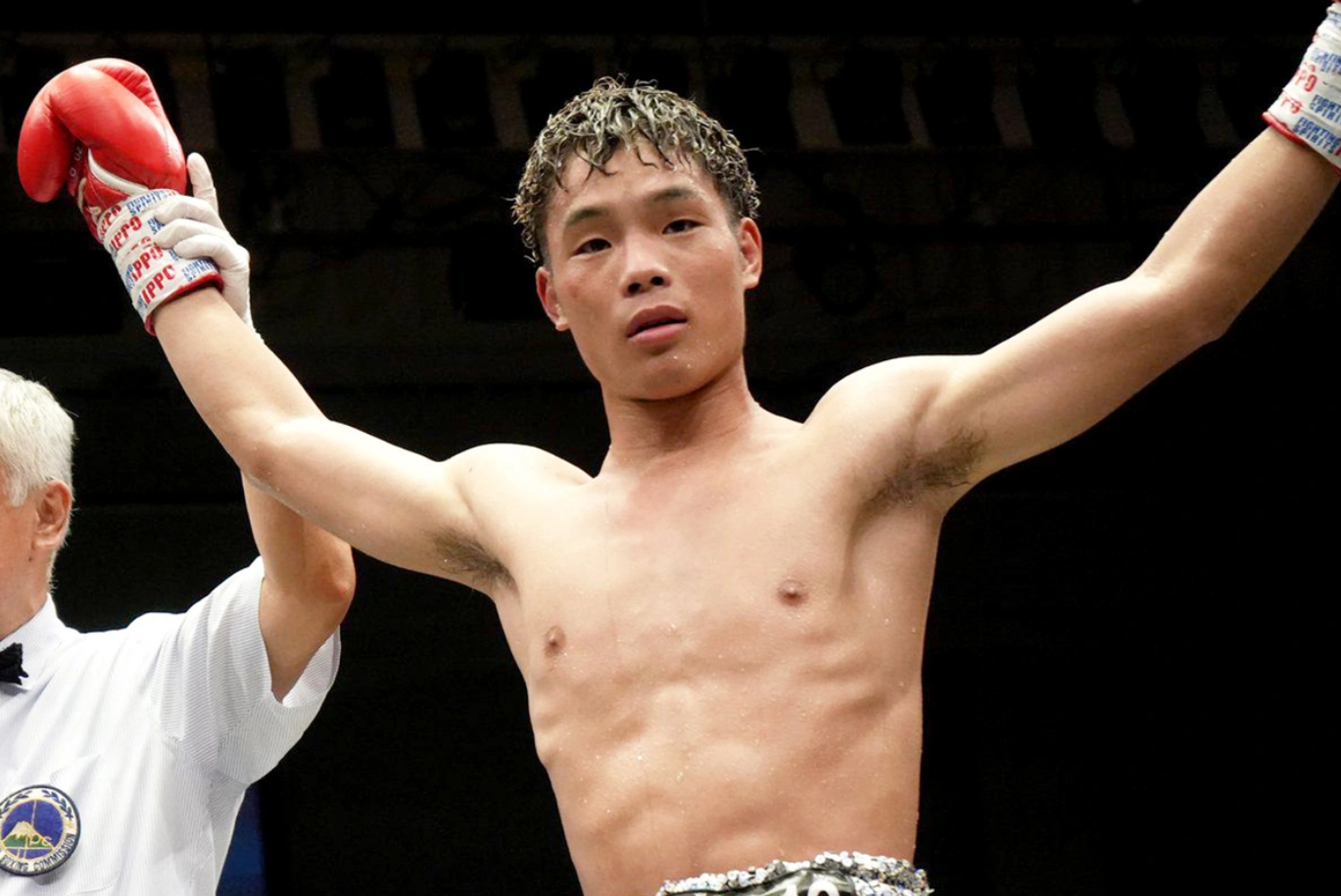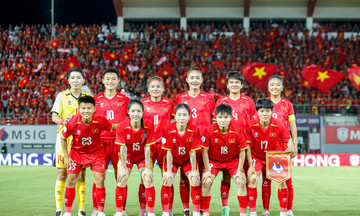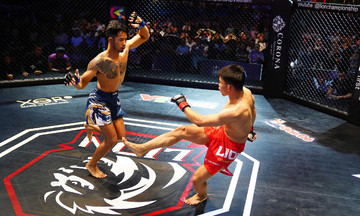The Japan Boxing Commission (JBC) announced changes that include pre-fight urine tests, stricter regulations on rapid weight loss, and upgraded ringside medical services.
Boxers who gain more than 10% of their body weight between the weigh-in and the fight will be required to move up a weight class for their next bout. An ambulance will be stationed at the venue, directly connected to a hospital capable of emergency surgery for brain injuries and other serious trauma. Previously, this rule only applied to world title fights.
 |
The deaths of Shigetoshi Kotari (right) and Hiromasa Urakawa shocked Japanese boxing. Photo: Boxing Daily |
The deaths of Shigetoshi Kotari (right) and Hiromasa Urakawa shocked Japanese boxing. Photo: Boxing Daily
The governing body was forced to review its safety procedures after the deaths of super featherweight Shigetoshi Kotari and lightweight Hiromasa Urakawa, both from brain injuries, just days after competing at the Korakuen Hall in Tokyo on 2/8.
Kotari collapsed after completing 12 rounds against Yamato Hata in an Oriental and Pacific Boxing Federation (OPBF) title fight. He was able to leave the ring but felt unwell. He later died after emergency brain surgery for a subdural hematoma, a condition where blood collects between the skull and the brain.
Urakawa suffered a brain injury after his 8-round fight with Yoji Saito. His death was announced just over 24 hours after Kotari's.
Both boxers were 28 years old. Urakawa had fought 14 professional bouts, while Kotari had 12.
The exact cause of their deaths is yet to be determined, but there is growing concern about the impact of rapid weight loss, a common practice among boxers to "make weight." Experts believe this makes the brain more vulnerable to injury and bleeding.
"Officials have decided to take every possible measure to ensure that the deaths of these two boxers were not in vain," said JBC Secretary General Tsuyoshi Yasukochi.
Japan Professional Boxing Association President Shoji Kobayashi called the deaths "truly regrettable" and said new regulations will be added regarding when boxers must stop sparring before a fight.
The deaths of Kotari and Urakawa have increased pressure on Japanese boxing to better protect its fighters after several serious incidents in the last two years.
 |
Kazuki Anaguchi was taken to the hospital in a deep coma and died at the age of 23. |
In early 2024, bantamweight Kazuki Anaguchi died at 23 from a subdural hematoma after being knocked down four times in a fight a few weeks earlier.
In 5/2025, Ginjiro Shigeoka was stretchered out of the ring and underwent emergency brain surgery after collapsing at the end of a fight in Osaka. He underwent a craniotomy and was forced to retire under JBC rules.
Some Japanese boxers worry that recent incidents will lead to criticism of the sport. "These incidents involve high-level fighters, so we may face calls for boxing to be banned," said Toshiharu Kayama, a former Japanese welterweight champion who runs a gym in Tokyo.
A few months ago, the international boxing world was also shocked by the death of Irish boxer John Cooney, 28, from a brain injury a week after losing his Celtic super featherweight title defense in Belfast.
Hong Duy (according to The Guardian)












